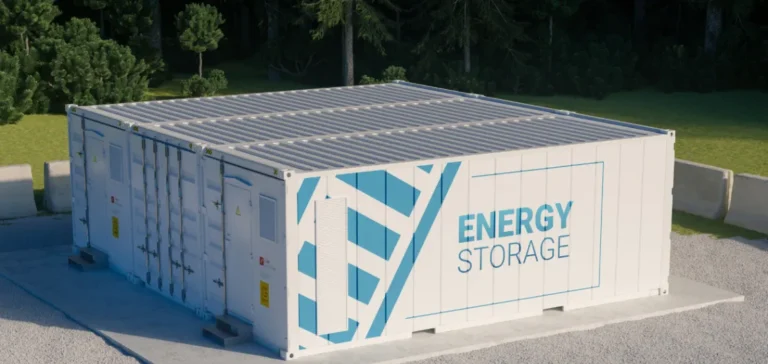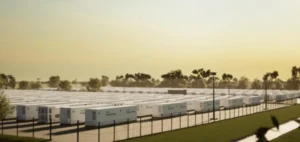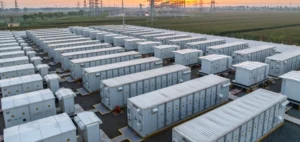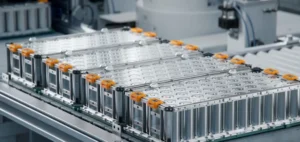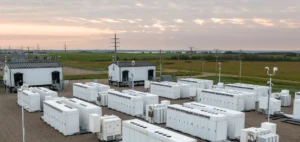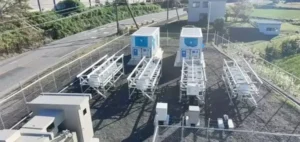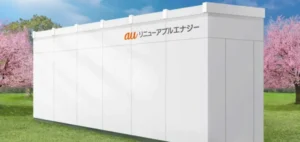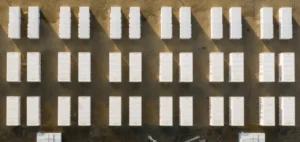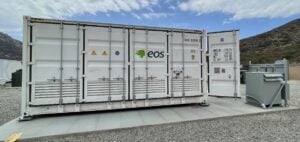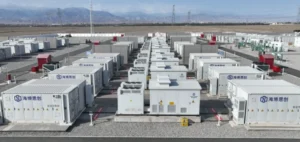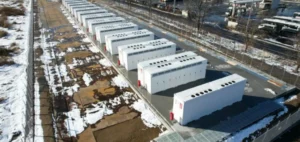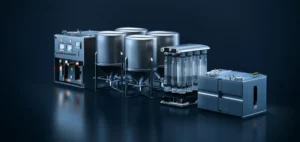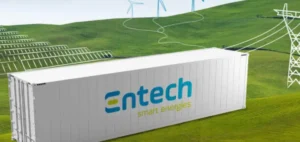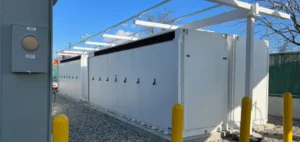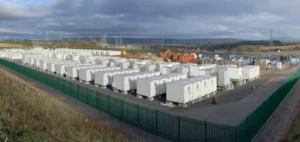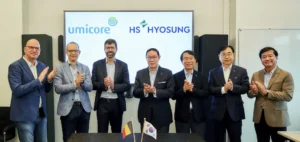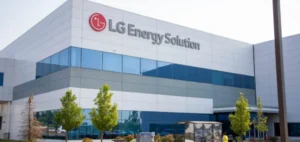Recurrent Energy, a subsidiary of Canadian Solar Inc. specializing in the development and management of solar and energy storage assets, has commissioned the Papago Storage energy storage unit, with a capacity of 1,200 megawatt-hours (MWh) in Maricopa County, Arizona. This project, operational since early July, now provides electricity to Arizona Public Service (APS), the state’s largest utility provider. APS expects to better meet the significant increase in electricity demand during the summer period, characterised by high network usage due to air conditioning in homes and commercial buildings. Papago Storage is the first of three contractual projects planned by Recurrent Energy with APS, with a total capacity of 1,800 MWh.
A project integrated into Arizona Public Service’s grid
These three installations will offer energy storage capacity combined with a total solar generation of 150 megawatts in alternating current (MWac). Once operational, these facilities will be able to provide enough electricity to power the equivalent of 72,000 homes for four hours. Additionally, the associated solar generation capacity will serve approximately 24,000 homes annually, according to estimates provided by Recurrent Energy. Papago Storage marks the operational start of a series of projects aimed at strengthening Arizona Public Service’s energy infrastructure in the coming years.
Local contribution and community partnerships
Beyond the purely technical and economic goal, Papago Storage also represents a source of additional tax revenues for Maricopa County. Recurrent Energy, through its Community CaRE (Community and Renewable Energy) programme, has also made donations to benefit the Harquahala Fire District and Arlington Elementary School, two local institutions located in Maricopa County. The technical execution of Papago Storage was entrusted to e-STORAGE, another subsidiary of Canadian Solar, which was responsible for the engineering, procurement, and construction of the entire site.
Reactions from key energy sector players
Derek Seaman, Director of Resource Acquisition at APS, stated that the Papago Storage project is an integral part of a diversified energy strategy aimed at ensuring high grid reliability. For his part, Kevin Thompson, Chairman of the Arizona Corporation Commission, praised the commissioning of this important energy storage infrastructure during a period marked by sustained growth in energy demand. Finally, Michael Carbone, Majority Leader in the Arizona House of Representatives, emphasized that this project is fully in line with the state’s economic dynamic, aiming to effectively meet growing energy demand linked to Arizona’s economic attractiveness.


